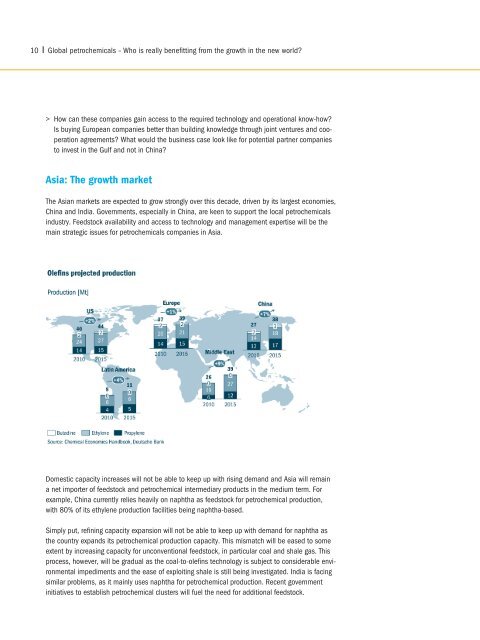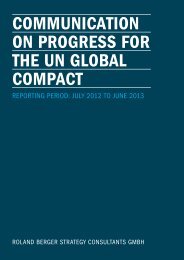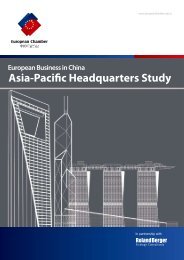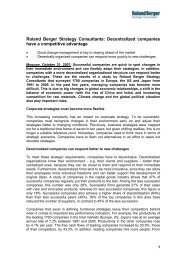Global petrochemicals - Roland Berger Strategy Consultants
Global petrochemicals - Roland Berger Strategy Consultants
Global petrochemicals - Roland Berger Strategy Consultants
- No tags were found...
You also want an ePaper? Increase the reach of your titles
YUMPU automatically turns print PDFs into web optimized ePapers that Google loves.
10<strong>Global</strong> <strong>petrochemicals</strong> – Who is really benefitting from the growth in the new world?> How can these companies gain access to the required technology and operational know-how?Is buying European companies better than building knowledge through joint ventures and cooperationagreements? What would the business case look like for potential partner companiesto invest in the Gulf and not in China?Asia: The growth marketThe Asian markets are expected to grow strongly over this decade, driven by its largest economies,China and India. Governments, especially in China, are keen to support the local <strong>petrochemicals</strong>industry. Feedstock availability and access to technology and management expertise will be themain strategic issues for <strong>petrochemicals</strong> companies in Asia.Domestic capacity increases will not be able to keep up with rising demand and Asia will remaina net importer of feedstock and petrochemical intermediary products in the medium term. Forexample, China currently relies heavily on naphtha as feedstock for petrochemical production,with 80% of its ethylene production facilities being naphtha-based.Simply put, refining capacity expansion will not be able to keep up with demand for naphtha asthe country expands its petrochemical production capacity. This mismatch will be eased to someextent by increasing capacity for unconventional feedstock, in particular coal and shale gas. Thisprocess, however, will be gradual as the coal-to-olefins technology is subject to considerable environmentalimpediments and the ease of exploiting shale is still being investigated. India is facingsimilar problems, as it mainly uses naphtha for petrochemical production. Recent governmentinitiatives to establish petrochemical clusters will fuel the need for additional feedstock.
















